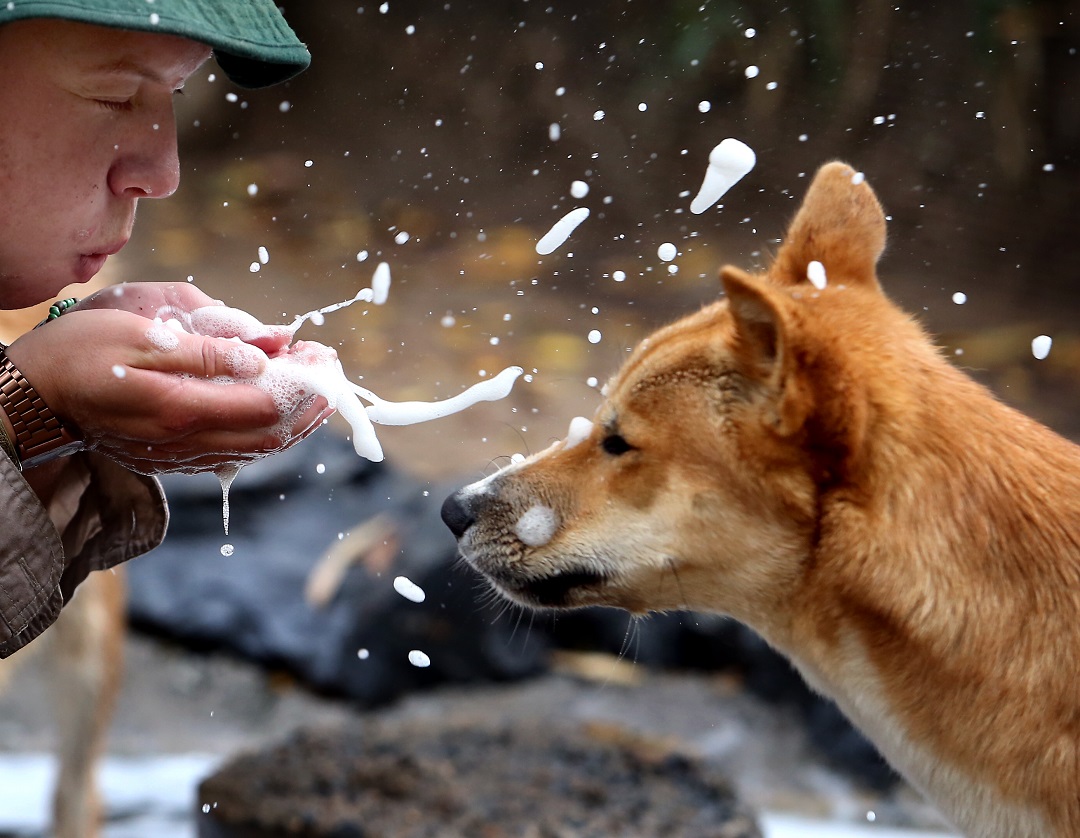You think dinner time is manic at your place, how would you feel about facing 200 hungry mouths a day?
The shopping list alone involves 30 kilograms of fruit and vegetables per week and 140 kilograms of dry feed such as seeds and pellets per week.
Then there are all the different stores to visit to collect food for the lizards, bilbies and insectivorous birds.
Ipswich Nature Centre Leading Hand Tara Snowling prepares food for the animals.
Imagine the shopping bags needed to carry the array of carnivore foods such as rats, mice, quails, chicken necks and wings, bones, kangaroo mince and pilchards.
Once that is all get home who is going to help carry all that inside let alone store it, weighed it, and cut it up to varying sizes?
For the staff and volunteers at the Ipswich Nature Centre say their time spent caring for the animals is worth the effort.
Ipswich Nature Centre Leading Hand Monique Saunders hoses of the path before opening
time in the free flight aviary.
Hard working zoo keepers can be found walking the board walks of the Ipswich Nature Centre from sun up to sun down rain, hail or shine.
Staff do a lot more than cuddle animals all day.
When they are not feeding, cleaning or checking on the animals, they are spending time working on ways to enrich the animals’ day.
Leo the frilled-neck lizard has his nails attended to.
Cleaning out pens and making sure the animals have dry beds is a constant job.
Most pens are hosed out, raked, bowls cleaned, fresh hay provided and droppings removed.
About 16 wheelie bins of rubbish are removed per week.
It is a mixture of dirty bedding straw, leaves and debris from the enclosures and faeces.
Staff are also monitoring the animals throughout the day to check for any health or behavioural issues.
Ipswich Nature Centre field worker Emily Broom prepares Tanami’s bilby enclosure before opening.
One of the most enjoyable tasks for the keepers is playing with the animals and preparing their enrichment.
Some of the most popular games with the Ipswich animals are hide and seek, toys, balls and playing in water.
Parcels are prepared with cardboard boxes to hide food items in to allow the animals to search for them and rip open boxes.
Milly the wombat gets stuck into her latest enrichment box which is filled with grass.
Parcels are also made from paperbark or newspaper with food items inside or interesting smelling things like feathers from birds or wool from the sheep.
Hiding food around the enclosures allows the animals to naturally forage for it.
Treat balls with small bits of food inside are a favourite for the dingo pups, bilbies and quolls.
A different item is used each day for each animal so they have variety.
Rocky the rock wallaby enjoys playing ‘king of the castle’ on top of a pile of rocks.
When all that is done, there is always research and learning to keep up to date.
Training of volunteers and staff is constant and staying up to date with the latest findings is important.
The Ipswich Nature Centre was recognised for its commitment to positive animal welfare receiving a three year accreditation from The Zoo and Aquarium Association late last year.
Ipswich Nature Centre staff and volunteers take a lunch break.
The Ipswich Nature Centre is at Queens Park, opening hours are:
- Tuesday to Sunday – 9.30 am – 4.00 pm
- School Holidays – Open 7 days – 9.30 am – 4.00 pm
- Public Holidays – 9.30 am – 4.00 pm
- Closed Christmas Day and Good Friday
Ipswich Nature Centre volunteer Kaitlyn Layton feeds the friendly barn animals.

